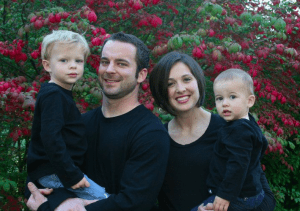Years ago I might have titled this post “Personal Precise Pastoral Ponderings on Preaching,” thinking, “That’s cool and catchy.” Those days are long gone. Scot McKnight suggested that I create some posts on the preparation for and ministry of preaching. I responded, “Scot, I have mixed feelings about the topic.” My initial observation is that USAmerican evangelical preaching has become a functional (pragmatic) reality and has lost its sacramental essence. Let’s go back a moment.
I was Junior High age when I was converted to Christ. I lived about 60 miles north of Chicago, IL, the home of the renowned Moody Bible Institute. M.B.I. would annually host Founder’s Week and would bring in those who were at the time “the big hitters” in preaching, for example, Robert J. Little, Stephen Olford, J. Vernon McGee, and Alan Redpath. All the sermons were transcribed, printed and bound in a paperback book. A friend of mine had many volumes. Not knowing anything about hermeneutics or homiletics, exegesis or exposition, I would devour clear, insightful presentations of Scripture. God would meet me, a kid, through those printed sermons. Interestingly, I observed that the preaching style was unique to the communicator. There was not a “this-is-the-right-way-to-preach” template laid over them. All I felt was the communicators’ love for God and passion for the Word. I did note, however, that the British preachers were masters of alliteration. I’m sorry, sisters who are preachers, but in those days a woman could only present “her testimony.”
Fast forward and I attend and graduate from Moody Bible Institute. During Founder’s Week, I sat under the “big hitters” at the time like Howard Hendricks, John Stott, and a newcomer, Irwin Lutzer. I went to Dallas Theological Seminary, the citadel of expositional preaching, and became aware of the battle of the preaching templates. I was trained by Haddon Robinson in the “the big idea” model. It’s a good model. Someone else suggested dramatic monologues. Many of the chapel speakers presented compelling topical sermons. Many scholarly sermons where presented that lit my heart on fire, but had little application in them if any at all. I graduated and began living in the land of pastoral work peppered with its periodic pastors’ conferences. You guessed it. The roster of speakers were the “big hitters”—John MacArthur, Stuart Briscoe, Chuck Swindoll, and Dr. E. V. Hill to name a few. As I journeyed on in the church world, new preachers appeared like Bill Hybels, Rick Warren, John Ortberg, Max Lucado, and recently, Andy Stanley. All these compelling preachers create sermon shock for us weekly “little hitters.” Some thought Rick Warren was shallow; everything John MacArthur said was “biblical,” and Hybels was too seeker-sensitive. Lucado was the Zen master of story. I also became aware of clusters of liturgical preachers who would gather, discuss the weekly liturgy, and help each other in understanding and communicating the text.
Recently at my denomination’s regional annual meeting, I had a seasoned pastor say to me, “I use to go to the pastors’ conferences and come away so depressed.” Been there, done that. It’s been said a thousand times ten thousand by pastors. Granted, those who host pastors’ conferences do not do so in order to depress attending pastors. Yet, the medium is the message. Countless pastors, feeling inadequate, begin to preach “big hitter” messages as their own. In baseball and in my opinion, that’s a foul ball.
In these posts, we’ll write about a passion for the Word, a diligent study and use of excellent resources. We will probe the truth that preaching in itself fosters very little life-change (Christian formation), yet we will strongly affirm the ministry of preaching. Why? What’s preaching about? Maybe we need to reframe preaching. What are the human dynamics and the Spirit’s work in preaching? We’ll celebrate the grand privilege of being “little hitters” week in and week out. We’ll ponder the geography of the soul that pastors help their people discover and feel at home in. Think how dull the art world would be if every painting in time and space was a Thomas Kinkade. We will explore the beautiful art of Word craft.












